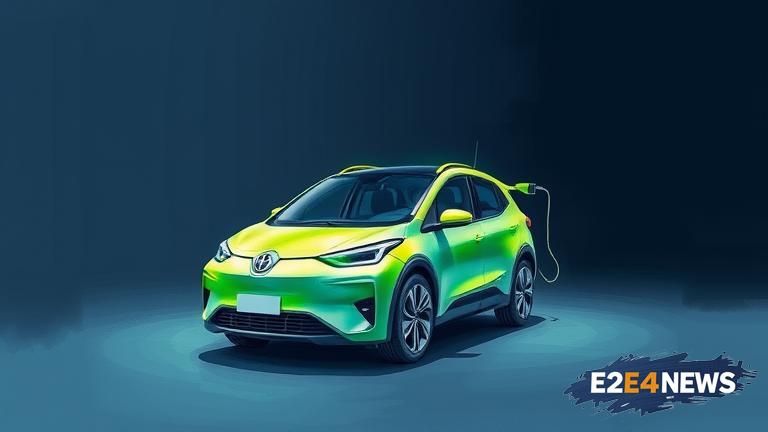The Indian government has announced a comprehensive plan to promote the adoption of electric vehicles (EVs) in the country. The plan includes a range of incentives and initiatives to encourage the use of EVs, including tax exemptions, subsidies, and investment in charging infrastructure. The government aims to have at least 30% of new vehicle sales be electric by 2030. To achieve this goal, the government will provide subsidies to manufacturers of EVs and components, as well as to buyers of EVs. The subsidies will be in the form of tax exemptions and discounts on the purchase price of EVs. Additionally, the government will invest in the development of charging infrastructure, including the installation of charging stations along highways and in cities. The government will also promote the use of EVs in public transportation, including buses and taxis. The plan also includes initiatives to promote the use of EVs in rural areas, where access to charging infrastructure may be limited. The government will work with private companies to develop new business models and technologies to support the adoption of EVs. The plan is expected to create new job opportunities in the EV sector and to reduce the country’s dependence on fossil fuels. The government has also announced plans to develop a national EV policy, which will provide a framework for the development of the EV sector. The policy will include guidelines for the manufacture, sale, and use of EVs, as well as for the development of charging infrastructure. The government has set a target of having at least 50% of new vehicle sales be electric by 2040. To achieve this goal, the government will need to work with a range of stakeholders, including manufacturers, suppliers, and consumers. The plan has been welcomed by the automotive industry, which sees it as an opportunity to develop new technologies and business models. However, some experts have raised concerns about the feasibility of the plan, citing the need for significant investment in charging infrastructure and the potential for disruption to traditional industries. Despite these challenges, the government is committed to promoting the adoption of EVs and to reducing the country’s carbon footprint. The plan is part of a broader effort to promote sustainable development and to reduce the country’s dependence on fossil fuels. The government has also announced plans to develop a national renewable energy policy, which will provide a framework for the development of renewable energy sources, including solar and wind power. The policy will include guidelines for the development of renewable energy infrastructure, as well as for the promotion of renewable energy technologies. The government has set a target of generating at least 40% of the country’s electricity from renewable sources by 2030. The plan to promote EVs is seen as a key part of this effort, as it will help to reduce the country’s dependence on fossil fuels and to promote sustainable development. The government will work with a range of stakeholders, including manufacturers, suppliers, and consumers, to promote the adoption of EVs and to develop the necessary infrastructure. The plan is expected to have a significant impact on the environment, as it will help to reduce greenhouse gas emissions and to promote sustainable development. The government has also announced plans to develop a national energy storage policy, which will provide a framework for the development of energy storage technologies, including batteries. The policy will include guidelines for the development of energy storage infrastructure, as well as for the promotion of energy storage technologies. The government has set a target of developing at least 10 GW of energy storage capacity by 2025. The plan to promote EVs is seen as a key part of this effort, as it will help to promote the development of energy storage technologies and to reduce the country’s dependence on fossil fuels.
